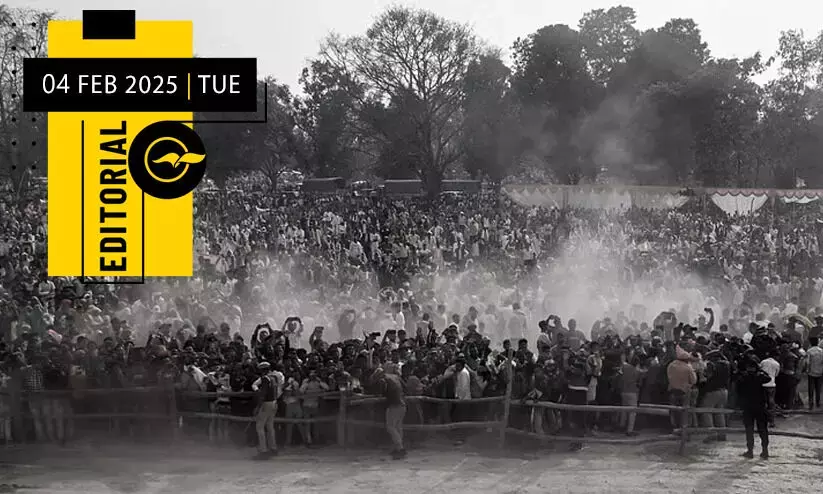
Judge temporarily halts Trump's plan to end US birthright citizenship
text_fieldsDonald Trump's bid to revoke birthright citizenship in the United States has been temporarily halted by a federal judge in Seattle. Following a 25-minute hearing on Thursday, US District Court Judge John Coughenour declared Trump's executive order "blatantly unconstitutional" and issued a restraining order that prevents it from taking effect.
The 14th Amendment to the Constitution has long been interpreted to grant citizenship automatically to almost anyone born in the United States. Trump hopes to repeal the provision for children born to parents who are in the country illegally or temporarily, BBC reported.
Four states—Oregon, Arizona, Illinois, and Washington—asked for the order to be put on hold while the federal court reviews their legal challenge.
During the arguments, Judge Coughenour reprimanded a Trump administration attorney for arguing that the executive order was constitutional and asked him "Where were the lawyers" when Trump's team drafted it.
"It boggles my mind," the judge said.
The executive order will be stayed for 14 days awaiting further legal proceedings. Trump, who has taken a number of unilateral moves since assuming the presidency on Monday, has long promised to make this specific change.
His executive order directed US government departments and agencies to refuse citizenship to children of migrants who are in the country illegally or on temporary visas.
It would have included children born on or after February 19, according to legal filings by the Department of Justice. According to reports, the administration intended to implement the order by withholding documentation, including passports, from anyone it deemed unfit for citizenship.
The judge's injunction also temporarily halted any enforcement of the order by federal agencies.
In their lawsuit, the four states challenging the order contend that the 14th Amendment and US law "automatically confer citizenship upon individuals born in the United States" and that the president lacks the authority to change the Constitution. They warn that if the decision is carried out, inhabitants of those states will "suffer immediate and irreparable harm".
"The individuals who are stripped of their United States citizenship will be rendered undocumented, subject to removal or detention, and many will be stateless," the lawsuit states.
Trump's Department of Justice claimed that the states' case did not justify the "extraordinary measure" of a temporary restraining order, but the judge disagreed.
The 14th Amendment, adopted in 1868, states in part, "All persons born or naturalized in the United States, and subject to the jurisdiction thereof, are citizens of the United States".
The Department of Justice contended that the clause "and subject to their jurisdiction thereof" excludes children of non-citizens who are in the US illegally and that the order is "an integral part" of Trump's goal to fix the country's "broken immigration system and the ongoing crisis at the southern border".
According to a legal challenge filed by states, 255,000 babies were born to illegal moms in the United States in 2022. Courts have interpreted the amendment to confer citizenship to anybody born on US soil, with very few exclusions, such as children of foreign diplomats.
Without a direct amendment to the US Constitution, which requires a two-thirds vote in both chambers of Congress as well as agreement from America's states, experts believe the issue will be determined by courts.
Lawyers representing the federal government said they planned to appeal the verdict and expected the issue to end up before the US Supreme Court.
The birthright citizenship amendment, enacted shortly after the US Civil War, resolved the issue of citizenship for freed, American-born former slaves. Lane Polozola, a lawyer for Washington state, warned in court that Trump's order will return the US to "one of our... darkest chapters.”























